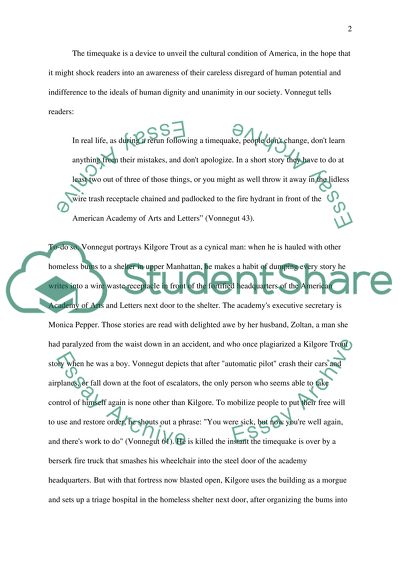Cite this document
(“Analytical Book Review of Time Quake by Kurt Vonnegut Essay”, n.d.)
Retrieved from https://studentshare.org/miscellaneous/1512100-analytical-book-review-of-time-quake-by-kurt-vonnegut
Retrieved from https://studentshare.org/miscellaneous/1512100-analytical-book-review-of-time-quake-by-kurt-vonnegut
(Analytical Book Review of Time Quake by Kurt Vonnegut Essay)
https://studentshare.org/miscellaneous/1512100-analytical-book-review-of-time-quake-by-kurt-vonnegut.
https://studentshare.org/miscellaneous/1512100-analytical-book-review-of-time-quake-by-kurt-vonnegut.
“Analytical Book Review of Time Quake by Kurt Vonnegut Essay”, n.d. https://studentshare.org/miscellaneous/1512100-analytical-book-review-of-time-quake-by-kurt-vonnegut.


